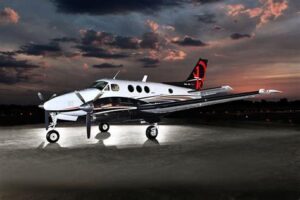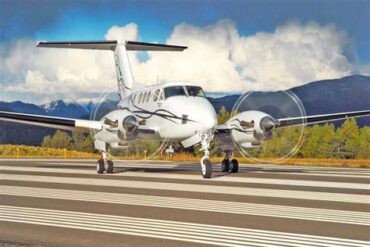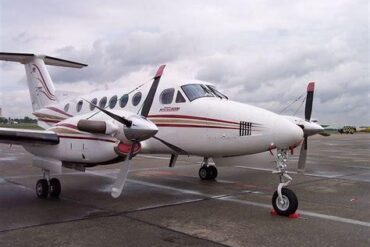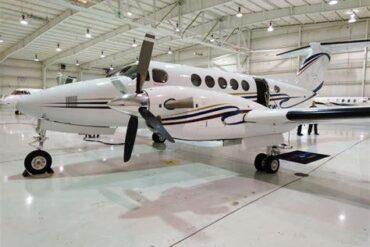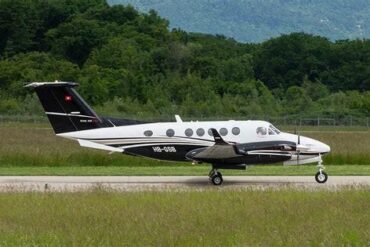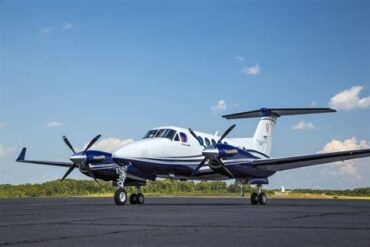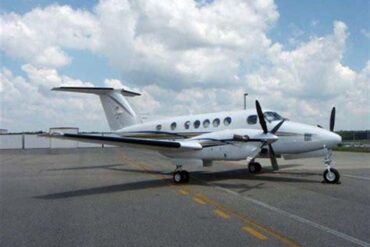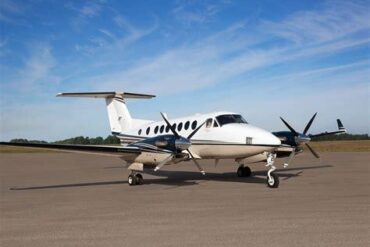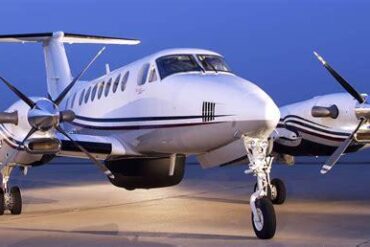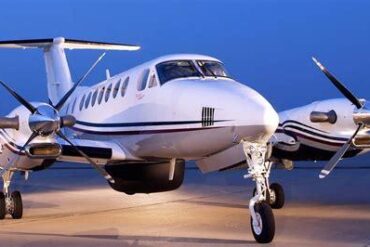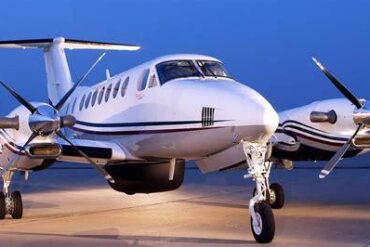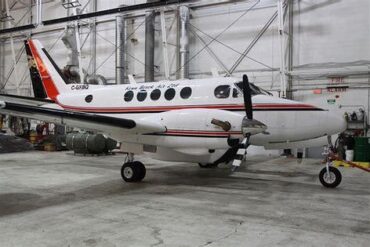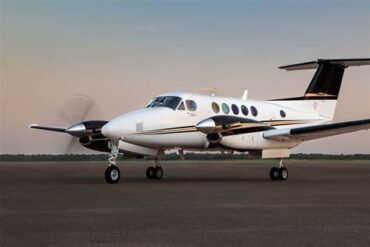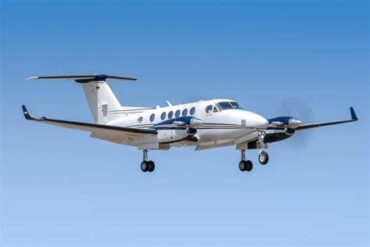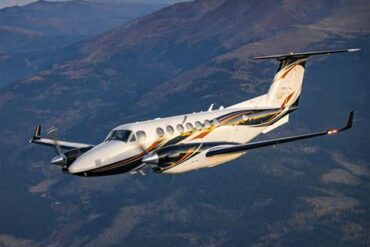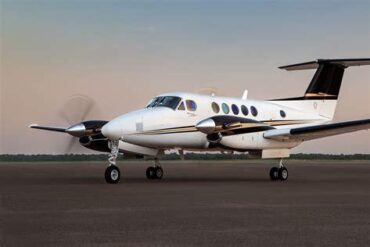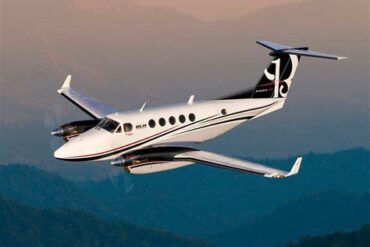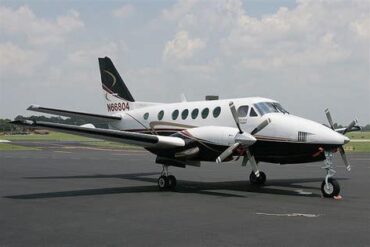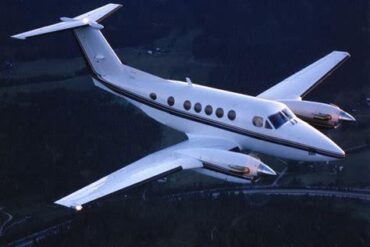The Beechcraft King Air C90 is a twin-engine turboprop aircraft renowned for its versatility, performance, and efficiency. As one of the most popular models in the King Air series, it offers a unique combination of comfort and capability, making it a preferred choice for both private and business aviation. In this article, we will delve into the price of the Beechcraft King Air C90, as well as its operating costs, providing prospective buyers and operators with detailed insights.
Overview of the Beechcraft King Air C90
The King Air C90 was first introduced in the late 1960s and has undergone several upgrades and modifications over the decades. It is powered by Pratt & Whitney Canada PT6A-21 engines, which are known for their reliability and performance. The C90 can comfortably seat up to 6-8 passengers and has a maximum range of approximately 1,500 nautical miles, depending on payload and conditions. This makes it an ideal option for regional travel and short-haul flights.
Key Specifications
-
Length: 26 ft 3 in (8.00 m)
-
Wingspan: 50 ft 2 in (15.25 m)
-
Height: 14 ft 6 in (4.42 m)
-
Max Takeoff Weight: 10,500 lbs (4,763 kg)
-
Cruise Speed: 200 knots (230 mph; 370 km/h)
Purchase Price of the Beechcraft King Air C90
When considering the purchase price of a Beechcraft King Air C90, several factors come into play, including age, condition, and installed equipment. On average, the price of a used King Air C90 ranges from $1.5 million to $3 million. Newer models or those with extensive upgrades may command prices at the higher end of this spectrum.
Factors Influencing Price
-
Age of the Aircraft: Older models tend to be less expensive, while newer models with advanced avionics and features may be significantly more costly.
-
Total Time and Maintenance History: Aircraft with lower flight hours and a comprehensive maintenance history can fetch a premium price.
-
Interior and Avionics Upgrades: Custom interiors and state-of-the-art avionics systems can substantially increase the value of the aircraft.
-
Market Demand: The general market demand for turboprop aircraft can influence pricing trends. A high demand may lead to increased prices, while a surplus of available aircraft could drive prices down.
Comparative Pricing
When compared to other aircraft in its class, the Beechcraft King Air C90 offers competitive pricing. For instance, similar aircraft such as the Piper Navajo Chieftain or the Cessna 421 Golden Eagle generally fall within the same price range, but the King Air C90 is often favored for its superior performance and cabin comfort.
Operating Costs of the Beechcraft King Air C90
Understanding the operating costs associated with the King Air C90 is crucial for potential owners and operators. Operating costs encompass various aspects, including fuel, maintenance, insurance, and pilot salaries. On average, the operating costs for the King Air C90 can be broken down as follows:
1. Fuel Costs
Fuel is one of the most significant ongoing expenses for any aircraft. The King Air C90 typically consumes around 30 gallons per hour (GPH) of fuel during cruise flight. Assuming an average fuel price of $5.00 per gallon, operators can expect to incur approximately $150 per hour in fuel costs.
2. Maintenance Costs
Routine maintenance is essential to ensure the aircraft remains airworthy and reliable. For the King Air C90, annual maintenance costs can range from $25,000 to $50,000, depending on usage and specific maintenance requirements. Key maintenance considerations include:
-
Scheduled Inspections: Regular inspections, including 100-hour and annual checks, are mandatory and can be costly.
-
Parts Replacement: The replacement of parts, such as tires, brakes, and engines, contributes to ongoing maintenance expenses.
-
Aging Components: Older aircraft may require more frequent repairs and part replacements, leading to higher overall costs.
3. Insurance Costs
Insurance is a critical component of operating costs and varies based on factors such as the aircraft’s value, the pilot’s experience, and the intended use. For the King Air C90, annual insurance premiums typically range from $10,000 to $20,000. Operators should shop around for the best coverage to manage costs effectively.
4. Pilot Salaries
Hiring qualified pilots is another significant expense. Depending on the experience level and location, salaries for King Air C90 pilots can range from $60,000 to $100,000 annually. For part-time operations, operators may choose to hire pilots on an hourly basis, which can cost between $500 and $800 per flight hour.
5. Miscellaneous Costs
Additional operating costs may include:
-
Hangar Fees: Depending on the location, hangar fees can range from $500 to $2,000 per month.
-
Landing Fees: Airports may charge landing fees based on weight and airport regulations, which can add up over time.
-
Crew Expenses: If multiple crew members are required, additional costs for accommodation and meals must be factored in.
Total Cost of Ownership
Taking all these factors into account, the total cost of ownership for the Beechcraft King Air C90 can vary significantly. On average, owners can expect to spend between $500,000 and $1 million annually, depending on flight hours and operational decisions. This estimate includes fixed costs (like insurance and hangar fees) and variable costs (like fuel and maintenance).
Break-Even Analysis
For operators considering the financial viability of owning a King Air C90, conducting a break-even analysis can be beneficial. By calculating the number of hours flown per year, operators can determine how many flights are necessary to cover the annual operating costs. This can help in assessing whether ownership is a sound investment compared to chartering services.
Conclusion
The Beechcraft King Air C90 stands out as a premier choice in the turboprop market, offering a blend of performance, reliability, and operational efficiency. While the purchase price ranges from $1.5 million to $3 million, potential owners must also consider the comprehensive operating costs, which can range from $500,000 to $1 million annually. Ultimately, understanding these financial aspects will enable prospective buyers to make informed decisions, ensuring that the King Air C90 continues to be a valuable asset in their aviation portfolio.
